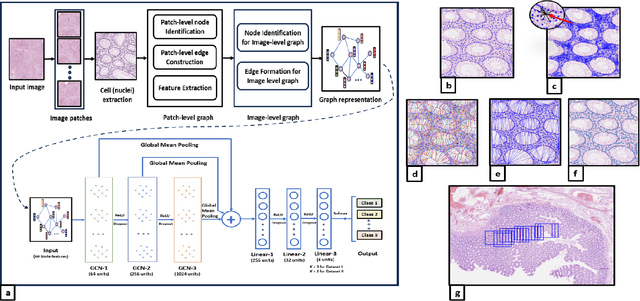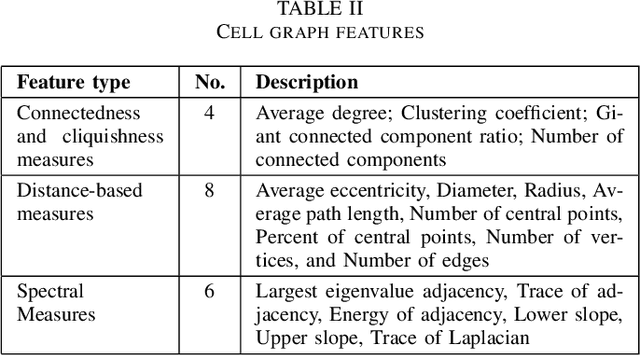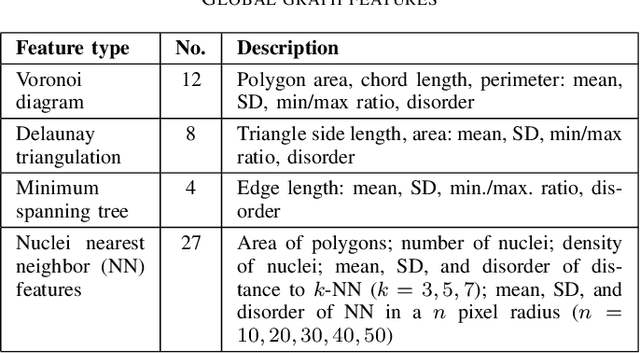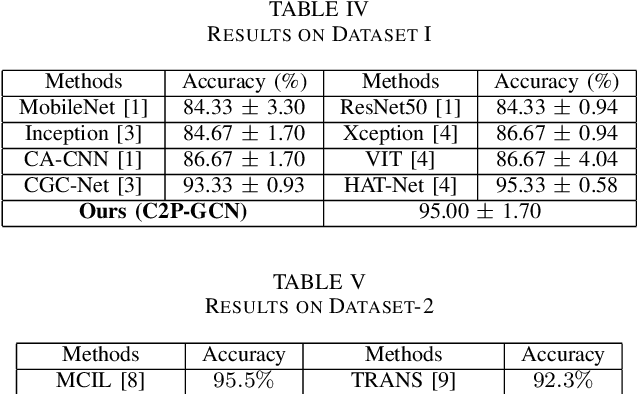Amanda W. Lund
C2P-GCN: Cell-to-Patch Graph Convolutional Network for Colorectal Cancer Grading
Mar 08, 2024



Abstract:Graph-based learning approaches, due to their ability to encode tissue/organ structure information, are increasingly favored for grading colorectal cancer histology images. Recent graph-based techniques involve dividing whole slide images (WSIs) into smaller or medium-sized patches, and then building graphs on each patch for direct use in training. This method, however, fails to capture the tissue structure information present in an entire WSI and relies on training from a significantly large dataset of image patches. In this paper, we propose a novel cell-to-patch graph convolutional network (C2P-GCN), which is a two-stage graph formation-based approach. In the first stage, it forms a patch-level graph based on the cell organization on each patch of a WSI. In the second stage, it forms an image-level graph based on a similarity measure between patches of a WSI considering each patch as a node of a graph. This graph representation is then fed into a multi-layer GCN-based classification network. Our approach, through its dual-phase graph construction, effectively gathers local structural details from individual patches and establishes a meaningful connection among all patches across a WSI. As C2P-GCN integrates the structural data of an entire WSI into a single graph, it allows our model to work with significantly fewer training data compared to the latest models for colorectal cancer. Experimental validation of C2P-GCN on two distinct colorectal cancer datasets demonstrates the effectiveness of our method.
 Add to Chrome
Add to Chrome Add to Firefox
Add to Firefox Add to Edge
Add to Edge